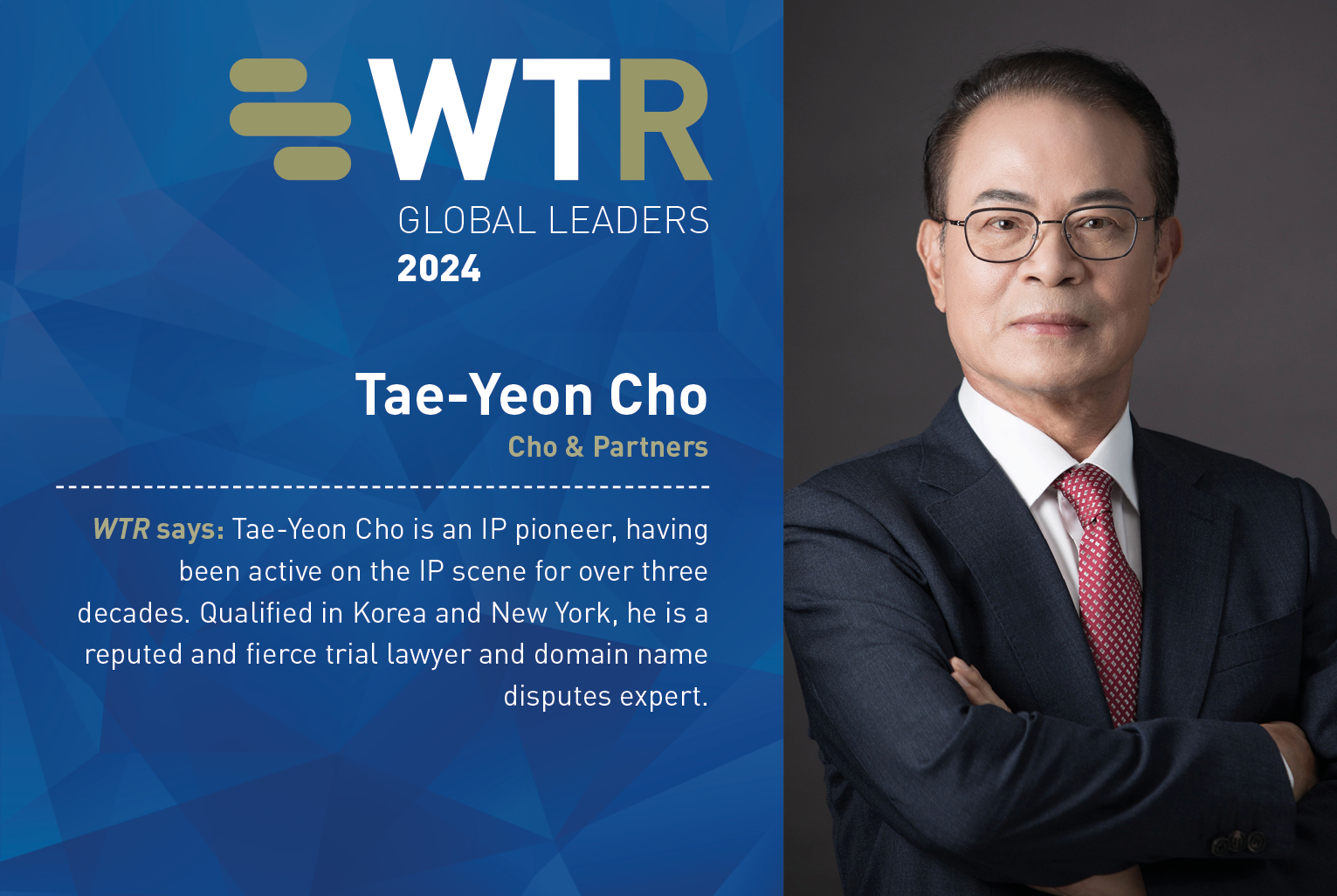Tae-Yeon Cho
You are recognised as one of Korea’s leading trademark litigators. What advice would you give to someone hoping to pursue a similar career before the courts?
The basic role of a lawyer in litigation is to persuade the judge to their client’s advantage. Judges in Korea tend to value written briefs much more than oral presentation – these are generally not even recorded. Therefore, the ability to write the brief well is essential. It goes without saying that doing so requires an accurate grasp of factual and legal issues and in-depth knowledge of the related laws and precedents, as well as creativity and imagination. Being creative and imaginative is very important, especially in cases without precedent.
What is the biggest professional challenge you’re currently facing, and how are you managing it?
I am representing a trademark owner in a lawsuit against a Korean business involving the issue of ‘reforming’. The business was commissioned by customers to alter genuine luxury brand bags into entirely different products. Customers provided the Korean business with the original bags, and the end-product still showed our client’s famous trademarks. Under the first-sale doctrine, trademark rights are exhausted upon sale of the product to the customer, but our position is that when a product is transformed, this doctrine does not apply, as the reformed good is no longer the same as the original product. The lower court rendered a decision in the trademark owner’s favour and the business filed an appeal to the Patent Court.
This case is the first of its kind to deal with the issue of reforming in Korea. As such, it is challenging because entirely new legal issues are being argued in litigation. Further, there is a very sensitive public interest consideration, since many people are using reform businesses to transform their bags.
What could the industry be doing to improve hiring processes to increase DEI in the workplace?
Because the populace in Korea is pretty homogenous, we don’t face the same types of challenges as the United States, which is very diverse. But with respect to gender equality there has been a significant improvement. In our field, there is currently an equal number or more women graduating from law schools – and the number is consistently growing. Even in our office, there is a 50:50 ratio of male-to-female attorneys at both the partnership and associate levels.
How have client demands evolved over the past 12 months, and how has the firm adapted to meet them?
Recently, we have seen more and more clients move to online invoicing and case management systems. The firm is trying to familiarise itself with these systems as quickly as possible for a smooth transition.
You previously served as an executive on Korea’s Internet Address Domain Name Dispute Resolution Committee. How do you predict that the appetite for domain names might change over the next few years?
For .kr domain names, there are no noticeable trends of the number increasing or decreasing. However, for top-level domain names, new ones are being created and it is expected that this will generate great interest.
Tae Yeon Cho
Partner
[email protected]
Tae-Yeon Cho deals with almost every area of intellectual property, including trademarks, designs, unfair competition and copyright, and is particularly experienced in litigation. He graduated with a bachelor of law from Seoul National University School of Law, a master of law from University of Chicago School of Law and a master’s degree from George Washington University National Law Center.
